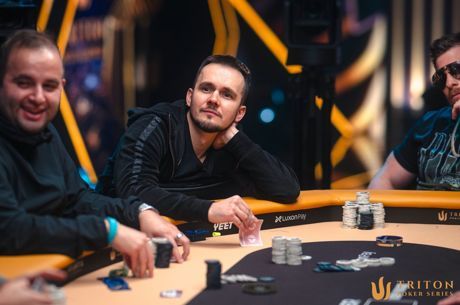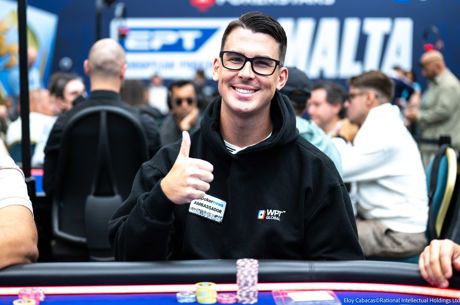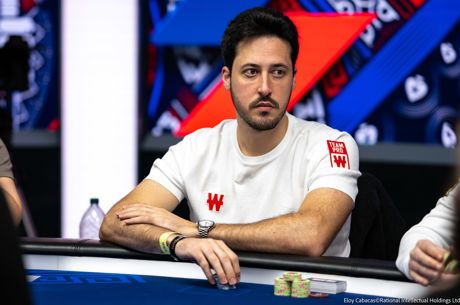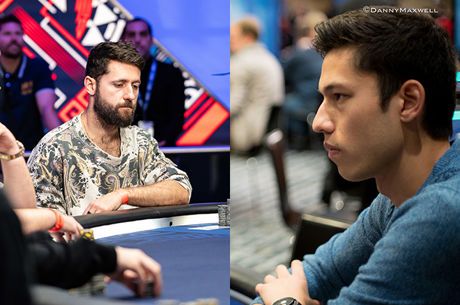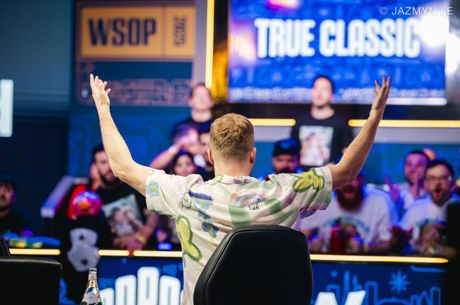2016 WSOP on ESPN: Could You Fold These Day 7 Main Event Hands?

The final table of the 2016 World Series of Poker Main Event is less than two weeks away, which means episodes of the run-up to the final nine are coming to a close on ESPN.
Over the course of this week's two episodes only six eliminations occurred, bringing the field from 27 players down to 21. The slow pace was given extra attention throughout, in particular during the latter episode when William Kassouf's lengthy deliberations at the feature table consistently raised the ire of his tablemates.
This week's round of "What Would You Do?" involves hands played by others, however. As it happens, with each of them you'll be playing along with players holding pocket pairs, and in each case you'll be put to a test along with them to see whether or not you want to fold the hands.
Incidentally, it goes without saying that with all of these hands we're playing a largely theoretical game when guessing how we would have played them. While we possess most of the pertinent information in the hand itself — that is, our cards, the board, and everyone's actions — we miss the larger context of previous hands played and observed, never mind the pressure of having already played six-plus days' worth of poker in the WSOP Main Event.
But it's still fun to sort out these puzzles. Try your hand at these.
Hand #1: Obst vs. Ruane
Players left: 25
Avg. stack: 13.475 million
Blinds/antes: 100,000/200,000/30,000
While others were involved in this hand, the two primary combatants were James Obst who started with almost 26 million and Michael Ruane who had close to 22 million to begin.
Fernando Pons opened the action by raising to 450,000 from under the gun. It folded to Ruane on the button who called the raise, then Obst looked down at 7♥7♦ in the small blind and called. Qui Nguyen came along as well, meaning there were four players and a pot of just over 2 million going to the flop.
The first three community cards came Q♠7♣J♣, giving Obst bottom set. First to act, Obst checked, and Nguyen also checked. Pons bet 625,000, then Ruane raised to 2.25 million.
Obst chose to check-raise to 5.3 million, bringing the pot up close to 10 million. That pushed both Nguyen and Pons out of the hand, but after a short bit of thought Ruane called. Pot 13.265 million.
The turn brought the 10♣ and Obst checked. Ruane fired 3.75 million, and after Obst called the pot was up to 20.765 million.
The river was the 10♦, pairing the board and giving Obst a full house. He bet 4.7 million, then watched as Ruane went all in with his last 12.48 million.
It would cost just under 7.8 million for Obst to call, and he had about 11.6 million behind.
This might seem like a strange one — asking whether or not you'd fold a full house on the river. Especially when calling and being right would mean having the chip lead with less than three tables left in the Main Event. Not only that, you wouldn't be eliminated yourself should you call and lose the hand.
Obst didn't act right away. "Looks like you have a straight flush," he said to Ruane, adding "or you could be the best actor of all time."
Eventually Obst made a decision... he folded! And those of us watching knew he'd chosen correctly, as Ruane indeed had 9♣8♣. The hand put Ruane in the chip lead with nearly 38 million, while Obst continued to battle with the 11.6 million he'd saved.
Follow-up question: Of the percentage who chose "fold" up above, how many really would have folded?
Hand #2: Vornicu vs. Hallaert
Players left: 25
Avg. stack: 13.475 million
Blinds/antes: 100,000/200,000/30,000
Soon after that Obst-Ruane hand, it was Kenny Hallaert raising to 475,000 from the hijack seat. then Valentin Vornicu reraised to 1.1 million from the button. It folded back to Hallaert who called, leaving himself about 12.1 million behind while Vornicu had 19.8 million.
The flop came 10♥10♣7♦. Hallaert checked, Vornicu continued for 1.225 million, and Hallaert called. The turn was the 6♣ and the action went similarly — a check from Hallaert, a bet of 2.2 million this time from Vornicu, and another call. Pot 9.59 million.
The river was the 4♥. Halleart checked a third time. We'll stop here first and ask...
Vornicu thought only a short while, then bet 2.65 million. Hallaert then responded with an all-in check-raise for 8.69 million. Now what?
Vornicu didn't waste much time before calling. Hallaert tabled A♦10♦ for trip tens and took down the pot, jumping up close to 27 million. Vornicu meanwhile had tumbled to almost 7.7 million, and could be heard talking out loud about how he had "almost" checked behind.
Hand #3: Christoforou vs. Lau
Players left: 22
Avg. stack: 15.31 million
Blinds/antes: 120,000/240,000/40,000
During the latter hour, the coverage broke away from the Kassouf saga long enough to show an interesting decision faced by his fellow Brit Andrew Christoforou in a hand versus Kakwan Lau.
Christoforou started the hand with about 8.3 million and was dealt 6♠6♦ in the cutoff. He raised to 525,000, then Lau — who had about 22 million to begin — three-bet to 1.5 million from the small blind. Christoforou called, bringing the pot to just over 3.5 million, and the flop came 3♥8♠5♥.
Lau checked, and Christoforou continued with a bet of 2.5 million, leaving himself 4.3 million behind. At that Lau check-raised enough to put Christoforou all in,* and the latter went into the tank.
"Do I want to gamble?" asked Christoforou, talking to himself. "You're gambling," he added, "I'm just involved in it."
Eventually the clock was called on Christoforou, and he had to make a decision. Should he fold his sixes?
Christoforou decided to call, and saw that he was ahead versus Lau's A♣K♠. The turn was the 2♦ and river the 4♦, and Christoforou survived with a double-up.
*This is how the hand appeared on the broadcast, although in truth Lau's check-raise was for just a little less than what Christoforou had behind. According to WSOP.com, a ruling was made that "the all-in action was accepted by both players," and Christoforou's remaining chips were put at risk. Meanwhile, Lau was given a one-hand penalty for exposing his hand with action pending.





